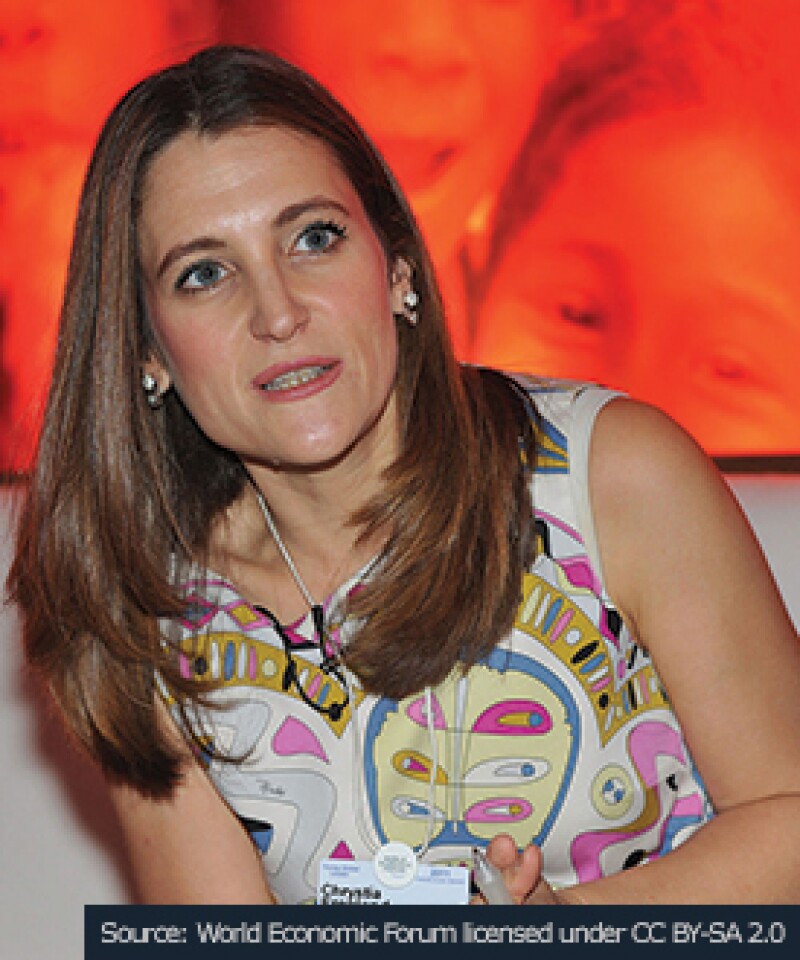
|
Chrystia Freeland is a new entry this year |
The Canadian Minister for International Trade, Chrystia Freeland, who is part of Prime Minister Justin Trudeau's government that swept to power in late 2015, hit the headlines in October 2016 for her work on the ailing Comprehensive Economic and Trade Agreement (CETA) between Canada and the European Union.
The agreement was five years in the making, but was very nearly derailed at the final hurdle by Wallonia, the French-speaking southern region of Belgium, after the European Commission decided that CETA had to be signed off by all regional parliaments.
"We spent the day there and we worked very hard with Wallonia and the European Commission to address the concerns of the Walloons," Freeland said. Despite this, Wallonia's concerns – which mainly related to the controversial investment court system that would have been imposed as a result of the deal, which many citizens across the EU, and particularly in Wallonia, felt gave companies too much power to sue governments – looked to have sunk the whole deal.
"It seems evident to me, and to Canada, that the EU is not capable of having an international agreement, even with a country that shares European values such as Canada, and even with a country that is so kind and patient like Canada," Freeland said at the time. "Canada is disappointed, me personally I am very disappointed. I worked very, very hard but I think it is impossible. We have decided to go home. I am truly very, very sad."
Despite the setback, CETA did progress, thanks in no small part to Freeland, her team and their contemporaries in the EU. The deal was able to progress 98% as planned, with an 'Interpretative Declaration' on the most contentious parts of it – i.e. the investment courts.
CETA was finally signed on October 30 2016 and will be in force, provisionally, from 2017.
Potential benefits of the trade deal include closer ties between Canada and the EU in the form of closer product regulations and the lowering or removal of tariffs in many areas.
Aside from CETA, Freeland has also held talks with UK Trade Minister Liam Fox in July, which he said looked into the possibilities for a post-BREXIT trade deal. Freeland, however, quickly clarified that she was focusing on the EU deal.
For Freeland, 2016 was a landmark year in concluding CETA, but once this is effective in 2017, her attentions may move to another trade agreement with an independent Britain, or to other key trading partners for Canada.
The Global Tax 50 2016 |
|
|---|---|
The top 10 • Ranked in order of influence |
|
2. The International Consortium of Investigative Journalists |
|
3. Brexit |
4. Arun Jaitley |
5. Jacob Lew |
|
10. Donald Trump |
|
The remaining 40 • In alphabetic order |
|









